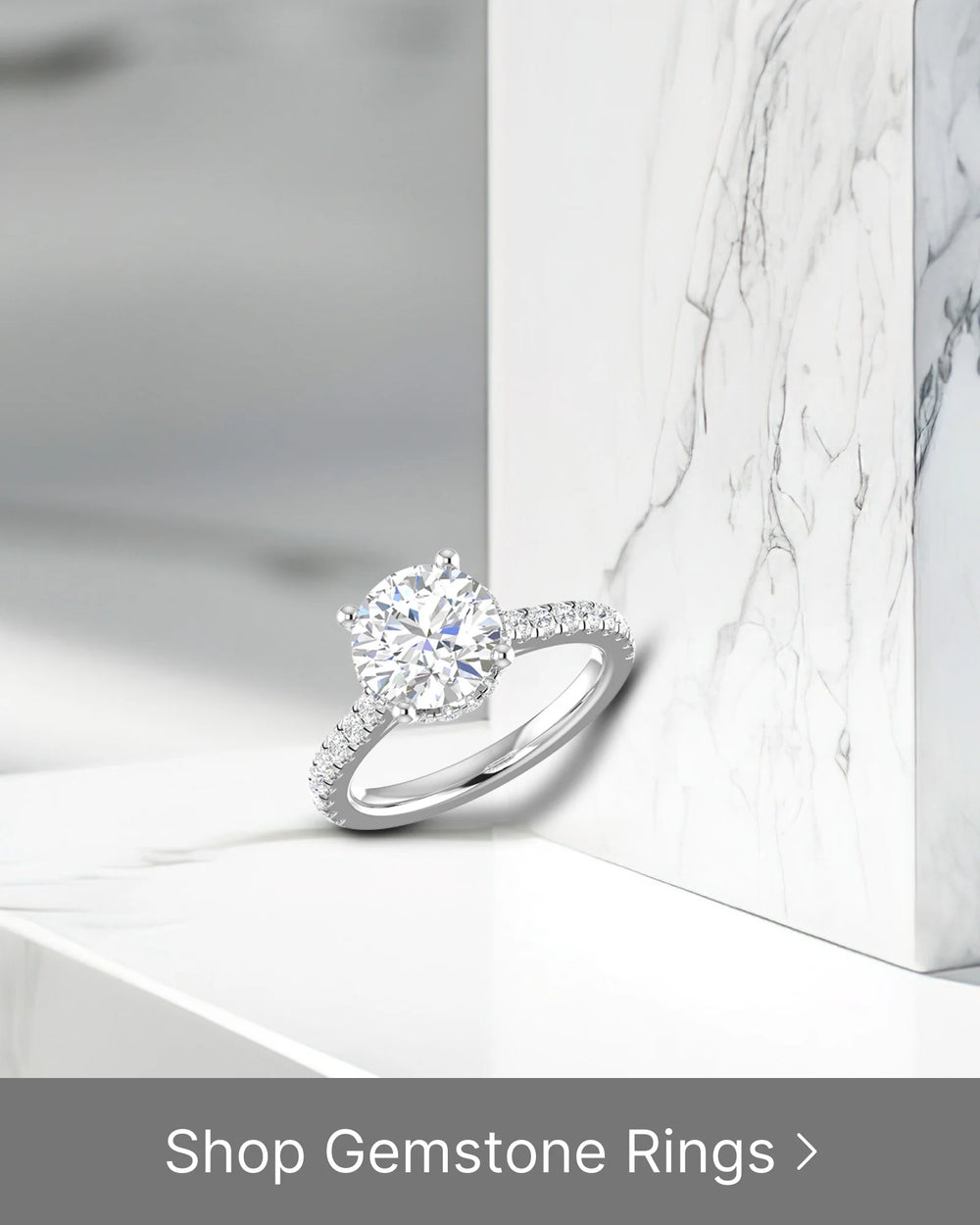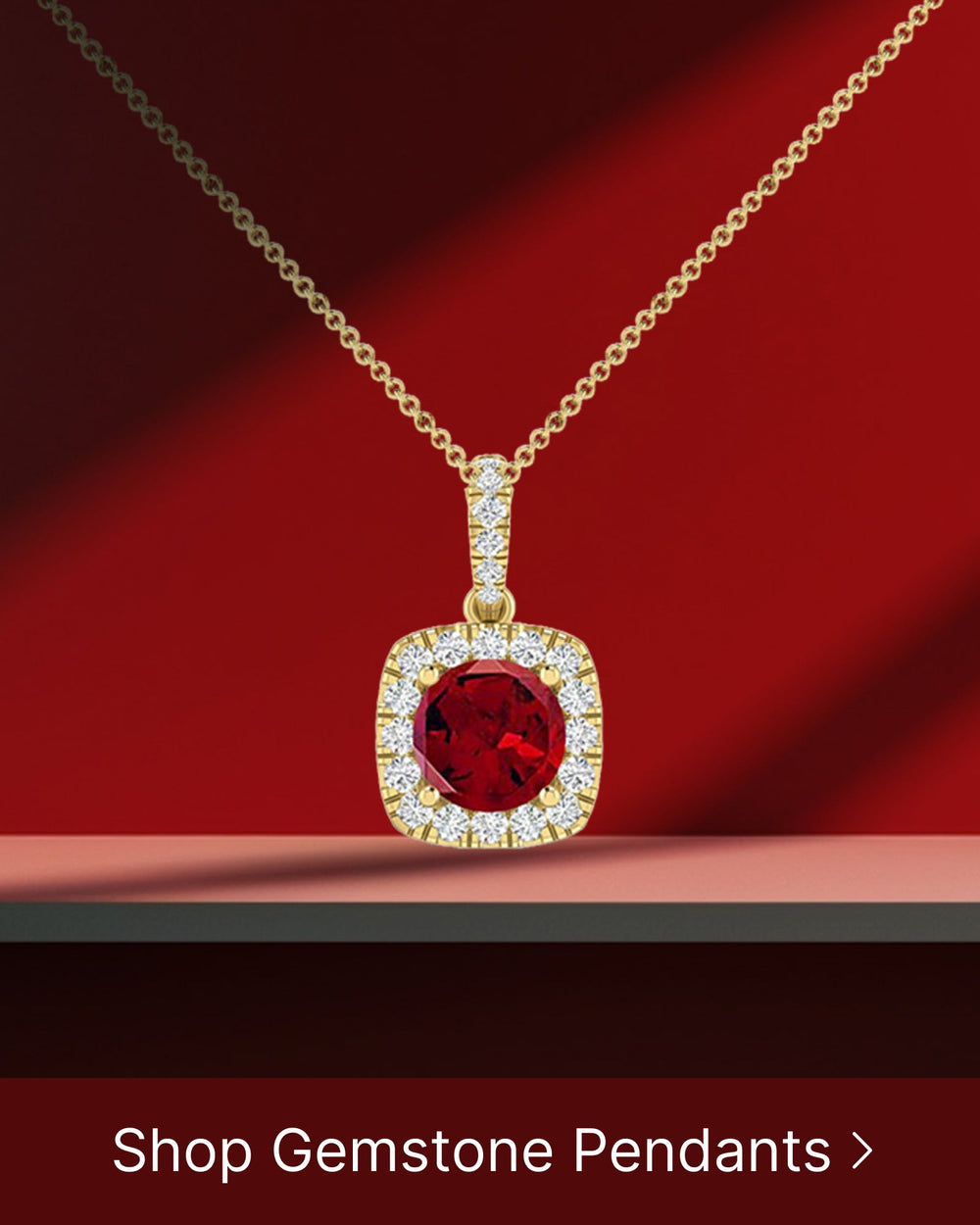Engagement rings hold significant symbolism in relationships, serving as a powerful reminder of love and commitment. However, there may come a time when removing your engagement ring becomes necessary. In this ultimate guide, we will explore the emotional and practical aspects of ring removal, helping you navigate this delicate process with ease.
Understanding the Symbolism of Engagement Rings
Before delving into the reasons and timing for removing your engagement ring, it's vital to grasp the rich symbolism behind it.
An engagement ring is not just a piece of jewelry; it carries with it a profound history and cultural significance that spans across centuries and various societies. Understanding the symbolism behind engagement rings can deepen our appreciation for these cherished tokens of love and commitment.
The History of Engagement Rings
Engagement rings trace their origins back to ancient times. In ancient Egypt, for example, couples exchanged rings made from braided reeds as a symbol of eternity. The circular shape of the ring, with no beginning or end, represented the everlasting nature of love.
In ancient Rome, engagement rings were often made of iron, symbolizing strength and permanence. These rings were not only a symbol of love but also served as a legal contract between the couple.
Throughout history, engagement rings have evolved, incorporating different materials and designs. From simple bands to elaborate gemstone settings, the style of engagement rings has varied across cultures and time periods.
Cultural Significance of Engagement Rings
Across cultures, engagement rings represent various meanings. In Western societies, the diamond solitaire has become synonymous with everlasting love and commitment. The brilliance and durability of diamonds symbolize the strength and endurance of a couple's relationship.
In some cultures, engagement rings are not just a symbol of love between two individuals but also carry a deeper connection to family and heritage. Intricate family heirlooms, passed down through generations, hold sentimental value and serve as a reminder of the enduring bonds of family.
Engagement rings also play a significant role in religious ceremonies. In many Christian weddings, the exchange of rings is a sacred ritual, symbolizing the couple's commitment to each other and their faith.
Furthermore, engagement rings can be a reflection of personal style and individuality. Couples often choose rings that align with their tastes and preferences, making the ring a unique expression of their love and personality.
As society continues to evolve, the symbolism of engagement rings continues to adapt and expand. Today, engagement rings can represent not only romantic love but also equality, partnership, and a celebration of diverse relationships.
The Emotional Connection to Your Engagement Ring
Removing an engagement ring is more than simply taking off a piece of jewelry. It involves untangling emotional attachments and reflecting on the sentimental value it holds.
When you slip that engagement ring onto your finger, it becomes more than just a beautiful adornment. It becomes a tangible representation of the love and commitment shared between you and your partner. Every time you glance at it, you are reminded of the hopes, dreams, and promises that you both hold dear.
The Sentimental Value of Engagement Rings
Engagement rings often carry immense sentimental value. They are not just pieces of jewelry; they are symbols of love and devotion. Each ring tells a unique story, reflecting the journey of a couple's relationship.
Imagine the ring on your finger. It sparkles with the memories of the day your partner got down on one knee, nervously professing their love and asking you to spend the rest of your lives together. It holds the excitement and joy of that magical moment, forever etched in its shimmering gemstone.
But the sentimental value of an engagement ring goes beyond the proposal. It becomes a constant reminder of the love and commitment shared between two individuals. It symbolizes the promises made and the dreams envisioned for the future. It is a testament to the strength of a relationship and the bond that holds two hearts together.
Dealing with Emotional Attachments
Parting with an engagement ring can be emotionally challenging. It represents more than just a piece of jewelry; it signifies a significant change in one's life. Whether it's due to the end of a relationship or the decision to upgrade to a new ring, the emotional attachments can be difficult to untangle.
Processing these emotions is crucial to ensure a healthy transition. It's important to take the time to reflect on the memories and emotions associated with the ring. Allow yourself to feel the sadness, the nostalgia, and even the relief that may come with letting go.
Consider finding closure by creating new rituals or traditions that honor the significance of the ring. This could involve donating it to a meaningful cause, passing it down to a loved one, or even repurposing the gemstone into a new piece of jewelry that holds personal significance.
Remember, the emotional connection to your engagement ring is unique to you. It's a testament to the love and commitment you shared with your partner. While parting with it may be bittersweet, it can also be a step towards healing and growth.
Reasons to Remove Your Engagement Ring
Several practical and emotional reasons may prompt you to remove your engagement ring temporarily or permanently.
While an engagement ring is a beautiful symbol of love and commitment, there are times when it may be necessary to take it off. Whether it's for practical reasons or emotional ones, removing your ring can have its benefits.
Practical Reasons for Ring Removal
Engagement rings can sometimes hinder daily activities, such as sports, housework, or manual labor. While these activities are important for maintaining a healthy and functional lifestyle, they can pose a risk to the integrity of your ring. In situations where there is a high chance of damage or loss, it is wise to remove your ring temporarily.
Imagine you're an avid tennis player, and you're about to step onto the court for an intense match. As much as you love your ring, you know that the constant movement and impact could potentially cause damage. By taking off your ring and safely storing it, you can fully focus on your game without worrying about any mishaps.
Similarly, if you're planning to engage in some heavy-duty housework or manual labor, it's best to remove your ring. Cleaning chemicals, tools, and machinery can all pose a risk to the precious gemstone and metal. By taking a few moments to remove your ring, you can ensure its long-term integrity and avoid any unnecessary repairs or replacements.
Emotional Reasons for Ring Removal
Relationship changes or significant life events might make ring removal necessary. Sometimes, it's not about the practicality, but rather the emotional significance behind taking off your engagement ring.
Life is full of ups and downs, and there may be moments when you need to take a step back and evaluate your relationship or personal growth. Removing your ring can symbolize a period of transition or reflection. It allows you to focus on yourself, your needs, and your goals without the constant reminder of your engagement.
For example, if you and your partner are going through a rough patch, taking off your ring can serve as a visual representation of the challenges you're facing. It doesn't necessarily mean the end of your relationship, but rather a temporary pause to reassess and work on the issues at hand.
Additionally, significant life events such as career changes, personal achievements, or even the loss of a loved one can prompt the need to remove your ring. These moments often require deep introspection and self-reflection, and having a physical reminder of your engagement may not align with your current emotional state.
Ultimately, the decision to remove your engagement ring is a personal one. It's important to consider both the practical and emotional aspects before making a choice. Whether it's for a few hours, days, or even longer, taking off your ring can provide you with the space and clarity you need during certain moments in life.
The Right Time to Remove Your Engagement Ring
Choosing the opportune moment to remove your engagement ring is a deeply personal decision. It involves identifying personal triggers and recognizing relationship dynamics.
Identifying Personal Triggers
Pay attention to your emotions and gauge if certain situations or feelings intensify the desire to remove the ring. For example, moments of doubt, resentment, or unexpressed desires may serve as triggers.
Recognizing Relationship Changes
Relationships naturally evolve over time. Understanding the signs and mutual growth within your partnership is vital in determining when removing your engagement ring may be appropriate.
How to Remove Your Engagement Ring
Now that you have contemplated the reasons and timing, let's explore both the physical and emotional aspects of removing your engagement ring.
Physical Removal of the Ring
When removing your engagement ring, it is essential to consider practical aspects, such as finding a safe place for storage, ensuring security, and maintaining proper care and cleaning routines.
Emotional Process of Ring Removal
The emotional transition accompanying ring removal is equally important. Engage in self-reflection, seek emotional support if needed, and embrace the opportunity for personal growth during this symbolic gesture.
By understanding the significance of engagement rings and considering the emotional and practical aspects, you can confidently approach the idea of removing your engagement ring when the time is right for you. Remember, your journey is unique, and honoring your emotions is a crucial part of the process.






